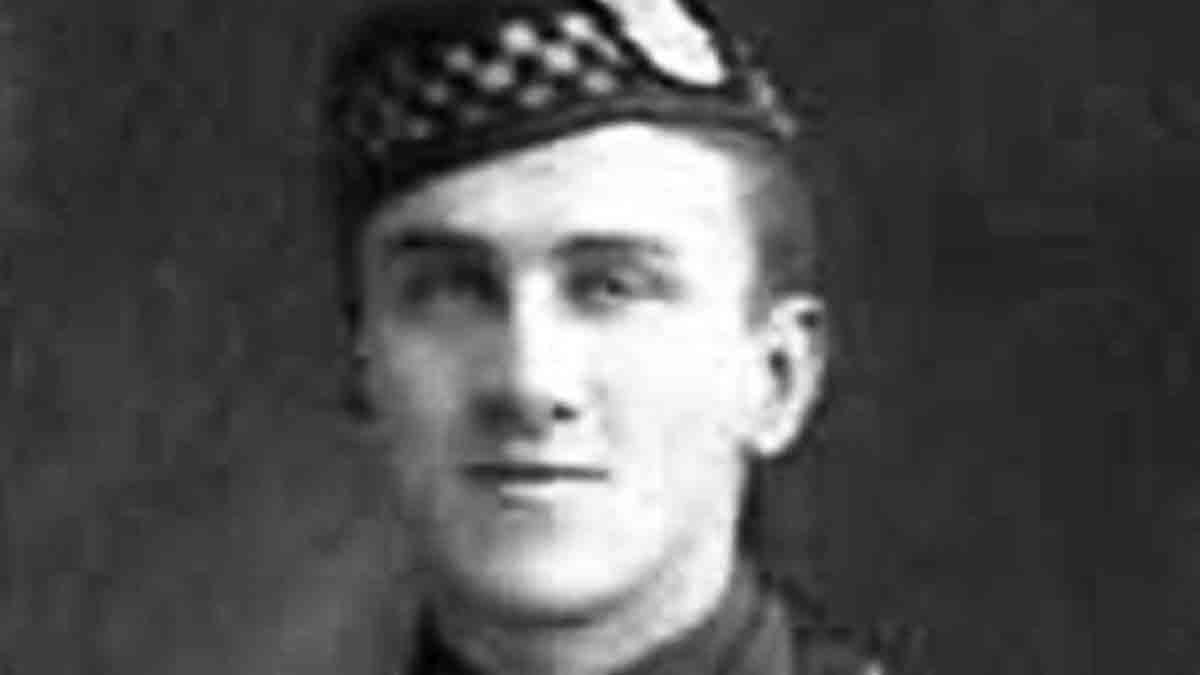PART 2
BY JOHN FITZGERALD
The Tans again snatched Tom Barron from the village of Newmarket. An impromptu escape bid was thwarted when the enemy shot part of a wall from under him with a Lewis Machine Gun. Villagers shuddered as the weapon spat fire and sent stone and mortar flying through the air.
They jostled Tom unto a Crossley Tender and took him to Woodstock, along with another prisoner, a James Ryan from Clonmel, who’d been visiting his mother in Ballyhale.
The Tans tethered the men to the top of the vehicle as human shields to deter any IRA ambush. Tom Barron and James Ryan were confined in the basement of Woodstock House, the floor of which had been sprinkled with salt to aggravate the prisoners’ wounds. Their captors had cut their bare feet with knives to ensure discomfort.
To add further salt to the wounds, as it were, the soldiers threw sacks of rotten spuds in the cells to attract rats. This kept prisoners awake at night as they shushed away the ravenous rodents. As if this ill-treatment weren’t severe enough, drunken soldiers urinated on them to show contempt for the rebel cause.
And then they had to be on their guard against the notorious “Woodstock spy”, a man the Tans occasionally planted in a cell, posing as a rebel, the objective being to elicit information from unsuspecting captives. This worked for a while, but word had got around, and the men were hyper-alert for the spy.
Tom Barron saw the insides of several prisons before the War of Independence ended. He was taken from Woodstock to Kilkenny Military Barracks; after which he found himself in Waterford Barracks, Ballybricken Prison, Kilworth Military Camp in Fermoy and then Spike Island Prison in Cobh.
Among the Auxiliary officers at Woodstock, two especially became hate figures locally and throughout the South East. Lt Harry Biggs, later Detective Inspector, led many a raid on homes around the county, paying close attention to Newmarket and the Barron family, whose spirit of resistance he’d sworn to quell.
His reputation hit a new low when he had Paddy “Lacken” Ryan’s father, a frail elderly man, strapped to a Crossley Tender as a hostage. For weeks, he was driven along bumpy roads and down narrow lanes. People who saw him swore they could hear his bones rattle as the lorry passed by. It’s said he managed a feeble smile despite his predicament.
Brigg’s career came to an abrupt end a few weeks after he transferred from Woodstock to Tipperary. He’d conducted dozens of raids, on mostly innocent households.
Then, one day in May 1921, he was travelling between Glenstal and Newport when the IRA ambushed the car. DI Biggs died of his wounds.
The dreaded Major meets his match!
The second most feared officer at Woodstock was Major Ewen Cameron Bruce, who’d been wounded five times in the Great War. In a 1917 engagement he’d lost an arm, a disability that didn’t seem to faze him at Woodstock, where he dished out the severest punishment to captives.
But the Major took on the wrong foe when he tackled the Manager of Kells Creamery, John Power. A courageous and resilient man, he assumed his position at the Creamery in 1900 and under his astute management it thrived for almost half a century.
In September 1920 the Tans raided the Creamery, removing a safe they claimed might contain evidence of illegal activity. Finding nothing of interest in the safe, they returned it to the Creamery, but the following month, John Power was roused from sleep at 2am one morning. The manager’s assistant in Kells was also visited and searched.
Amid torchlight and the glint of gunmetal, John recognized one of the two raiders as Major Bruce. He remembered him from the previous raid. What he didn’t know was that the Major had since been removed from his post at Woodstock for “conduct becoming” – a serious assault.
The Major demanded keys to the safe; which this time contained the princely sum of £75, a fortune in those days. The raiders took the money and drove off. It later emerged that they may have had two more accomplices, a Sergeant and Lieutenant of the Devonshire Regiment.
Undeterred by Bruce’s fearful reputation, John Power refused to let the crime go unchallenged. He exposed what happened and the Major was court-martialed in Waterford, found guilty of robbery and sentenced to a year’s imprisonment. Bruce’s nephew- the second raider- got three months. The case was covered in newspapers around the world.
This was a remarkable achievement for John Power…to win justice right in the middle of the “Tan War”. He continued as Manager of Kells Creamery until his death in 1946.
He’s remembered and honoured as a brave man of the people, and also as a keen GAA fan and a gifted cyclist, apart from his high standing within the farming community. John Power was the grandfather of Marianne Lyons-Kelly, who featured in last week’s Observer article on the Kilkenny Heritage Walkers.
(My novel, Invaders, tells the story of how a small band of men and women in 17th century Ireland took on one of the most powerful armies in the world. It’s available from Amazon)




















